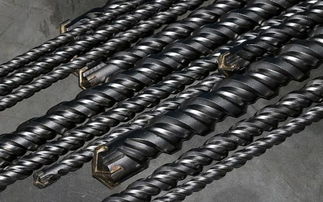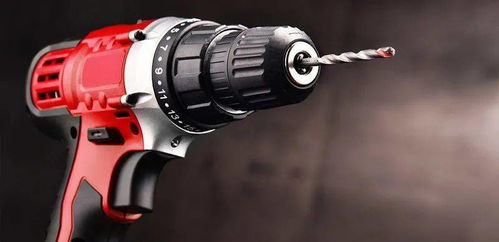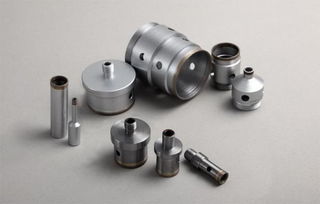
1 8 Drill Bits: A Comprehensive Guide
When it comes to drilling holes, having the right drill bits is crucial. Whether you’re a DIY enthusiast or a professional tradesperson, understanding the different types of drill bits available can make a significant difference in the quality and efficiency of your work. In this article, we will delve into the world of 1/8 drill bits, exploring their features, uses, and benefits.
Understanding 1/8 Drill Bits

1/8 drill bits are a popular choice for a variety of tasks due to their small size and versatility. These bits are designed to fit into tight spaces and are often used for precision drilling. Let’s take a closer look at what makes 1/8 drill bits unique.
| Feature | Description |
|---|---|
| Size | 1/8 inch diameter |
| Material | High-speed steel (HSS), cobalt, or carbide |
| Shank Type | Straight shank or hex shank |
| Tip Type | Flat, ball, or brad point |
As you can see from the table, 1/8 drill bits come in various materials, shank types, and tip designs. The choice of material depends on the type of material you’re drilling and the level of precision required. High-speed steel (HSS) is a common choice for general-purpose drilling, while cobalt and carbide are better suited for harder materials.
Applications of 1/8 Drill Bits

1/8 drill bits are incredibly versatile and can be used for a wide range of applications. Here are some common uses:
-
Drilling holes in small materials such as plastic, wood, and soft metals.
-
Creating pilot holes for larger drill bits in tight spaces.
-
Drilling holes in thin materials, such as thin sheets of metal or plastic.
-
Drilling holes in small-scale projects, such as model building or jewelry making.
Due to their small size, 1/8 drill bits are particularly useful in situations where space is limited or precision is crucial. They are also a great choice for hobbyists and DIYers who need to work on small projects.
Choosing the Right 1/8 Drill Bit

When selecting a 1/8 drill bit, there are several factors to consider:
-
Material: Choose a bit made from the appropriate material for the material you’re drilling.
-
Tip Type: The tip design will determine the type of hole you can create. For example, a flat tip is ideal for general-purpose drilling, while a ball tip is better for drilling at angles.
-
Shank Type: Ensure the shank type of the bit matches the chuck on your drill.
It’s also important to consider the quality of the bit. Cheaper bits may not hold their sharpness as well and can break more easily. Investing in a good quality bit can save you time and money in the long run.
Maintenance and Care
Proper maintenance and care can extend the life of your 1/8 drill bits. Here are some tips:
-
Always use the correct speed and pressure when drilling to prevent overheating and bit breakage.
-
Keep your bits clean and sharp. Use a bit sharpener or honing stone to maintain the cutting edge.
-
Store your bits in a dry, cool place to prevent rust and corrosion.
By taking care of your drill bits, you can ensure they remain effective and reliable for years to come.
Conclusion
1/8 drill bits are a valuable tool for anyone who needs to drill small holes in a variety of materials. With their small size, versatility, and precision, these bits are an essential addition to any tool





